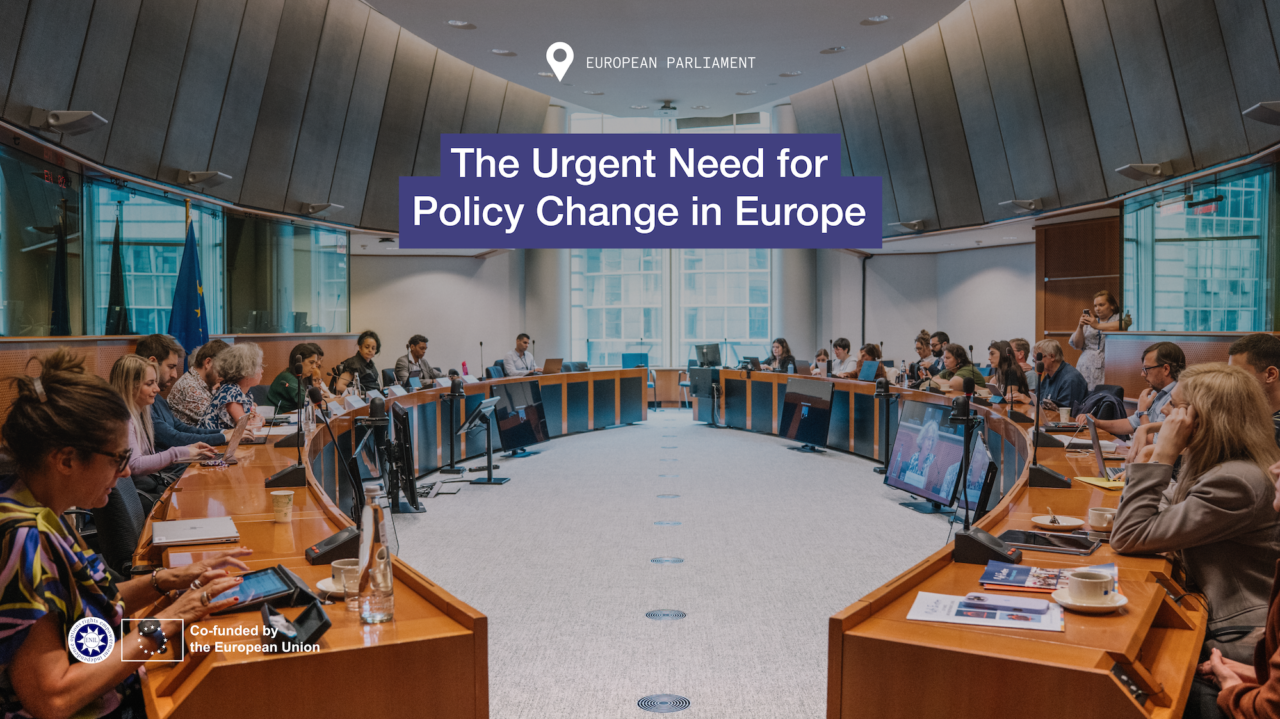This week, the European Network on Independent Living held a policy debate at the European Parliament titled “Mainstreaming the UN CRPD into EU Legislation on State Aid: Which Way Forward?”. The debate brought together representatives of disabled people’s organisations, policy experts, and EU institutions to shed light on the pressing need to align EU state aid regulations with the UN Convention on the Rights of Persons with Disabilities (CRPD).
Among the speakers were MEP Katrin Langensiepen, Professor Markus Schefer, Ana Carla Pereira, Freddy Jussien, Rhoda Garland, Nadia Hadad, and Florian Sanden.
Sheltered Workshops: A Barrier to Equality
During the debate, MEP Katrin Langensiepen highlighted that 3 million disabled people in Europe continue to work in sheltered workshops, often for extremely low or no pay. She questioned why Europe, which guarantees fair working conditions for most workers, accepts far lower standards for disabled people. Katrin made the point that inclusion should be a funding requirement rather than an optional extra.
Professor Markus Schefer, member of the UN CRPD committee, reinforced this argument, explaining that Article 27 of the CRPD obliges States to take proactive measures to prevent discrimination against disabled people. He reminded attendees that discrimination includes any setting which blocks disabled people from full and equal participation. Under this understanding, sheltered workshops are fundamentally segregating and breach the CRPD’s principles of equality and inclusion. “In a sheltered workshop, you cannot access employment on an equal basis with others, because you live in a separate world,” he explained.
Employment Must Mean Inclusion
Freddy Jussien of Inclusion Europe made clear that state aid could be a powerful tool for true inclusion if redirected to support personal assistance, job coaches, accessibility improvements, and reasonable accommodation. These measures give disabled people a fair chance to take part in the labour market. “Good wages, strong working rights, and social inclusion must be guaranteed if employment is to be meaningful,” he stressed.
Ana Carla Pereira of the European Commission presented details of the Disability Employment Package, designed to help Member States invest in quality and inclusive employment. She noted that from now on, countries wanting to keep funding sheltered workshops will face tougher scrutiny and a more complex approval path.
Rhoda Garland (CRPD Malta) stressed the value of disabled people working in mainstream environments, noting that their participation changes how employers view productivity and talent. She added that sheltered employment creates isolation, traps people in poverty through poor pay, and sets expectations so low that it prevents genuine equality and inclusion.
Reform as a Human Rights Imperative
Florian Sanden, speaking for ENIL, emphasised the urgent need to change EU state aid rules to stop financing segregated sheltered employment. “This is not a radical change, but a logical step,” he said. “It is about aligning EU policy with human rights obligations and with economic sense.” Public money, he argued, should instead be channelled into inclusive, supported employment, consistent with Independent Living values and community inclusion.
The event sent a strong message: Europe must move beyond accepting segregation and instead champion inclusive, fair, accessible workplaces. Public resources must be tied to achieving real equality rather than sustaining exclusionary parallel systems.
ENIL expresses sincere thanks to all speakers, participants, and allies for defending Independent Living and advancing the full emancipation of disabled people across Europe.



